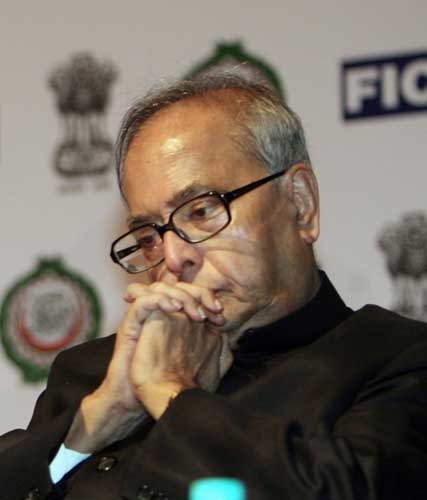Pakistan on full military alert after hoax call
Man claiming to be India's Foreign Minister threatens President Zardari with war over Mumbai attacks

A hoax telephone caller pretending to be the Indian Foreign Minister led the nuclear-armed Pakistani military to a state of high alert last weekend, in the belief that India might be moving towards armed action against their country in the wake of the Mumbai killings.
The call, to the Pakistani President, Asif Ali Zardari, was purportedly from India's Foreign Minister, Pranab Mukherjee. Made late on 28 November, at the height of the crisis between the two countries over Mumbai, the call was put through by Mr Zardari's staff without the usual checks on its authenticity. During the conversation Mr Mukherjee appeared to threaten Pakistan with war unless it acted against those who attacked Mumbai.
The Pakistani authorities did not suspect that the call was fake, and immediately sent up military aircraft with live ammunition to patrol above the capital, Islamabad, and Rawalpindi. Pakistan's Prime Minister was told to return from Lahore as the situation rapidly escalated.
According to a report of the incident in the Pakistani daily Dawn, since confirmed by diplomats, the hoax caller provoked a crisis because Pakistan believed his threat of military action was real. Some senior Pakistani officials spoke of moving troops from the border with Afghanistan to the frontier with India. It is a measure of the lack of contact between the Indian and Pakistani governments that the hoaxer was able to persuade Mr Zardari that he was the Indian Foreign Minister, and that the truth about the call could not be established for many hours.
Finally, the US Secretary of State, Condoleezza Rice, called Mr Mukherjee in the middle of the night to ask why he was making threats of war. He protested that he had never phoned Pakistan's President. It is still not known who made the fake call, which came from Delhi. Pakistanis speculated that it might have come from within India's Ministry of External Affairs, but India said that said no calls were made from there at the appropriate time. More astonishing is the ease with which the caller was put through without any check on his identity. Most governments monitor important calls so they can be authenticated immediately, and the conversation subsequently analysed.
The alarm caused in Washington by the threatening call may explain why Ms Rice visited India and Pakistan last week, though her trip appears to have achieved little. She is reported to have told Pakistani leaders that the US has "irrefutable evidence" of the involvement of elements in Pakistan in the Mumbai attacks, but it is unlikely that Pakistan will carry out more than cosmetic action against suspected groups. The most obvious motive for the Mumbai attacks would be to provoke a confrontation between Pakistan and India that would lead to Pakistani troops being shifted from the border with Afghanistan.
Indian police arrested two men accused of illegally buying mobile phone cards that were later used by the gunmen, but it appeared that one of them was a policeman on an undercover mission. Potentially of greater significance is the revelation that Faheem Ansari, an Indian Muslim arrested in February, was allegedly carrying sketches of the luxury hotels, train terminal and other targets attacked in Mumbai. The arrests reinforce the theory that Pakistani-based militants must have had local assistance.
Join our commenting forum
Join thought-provoking conversations, follow other Independent readers and see their replies
Comments